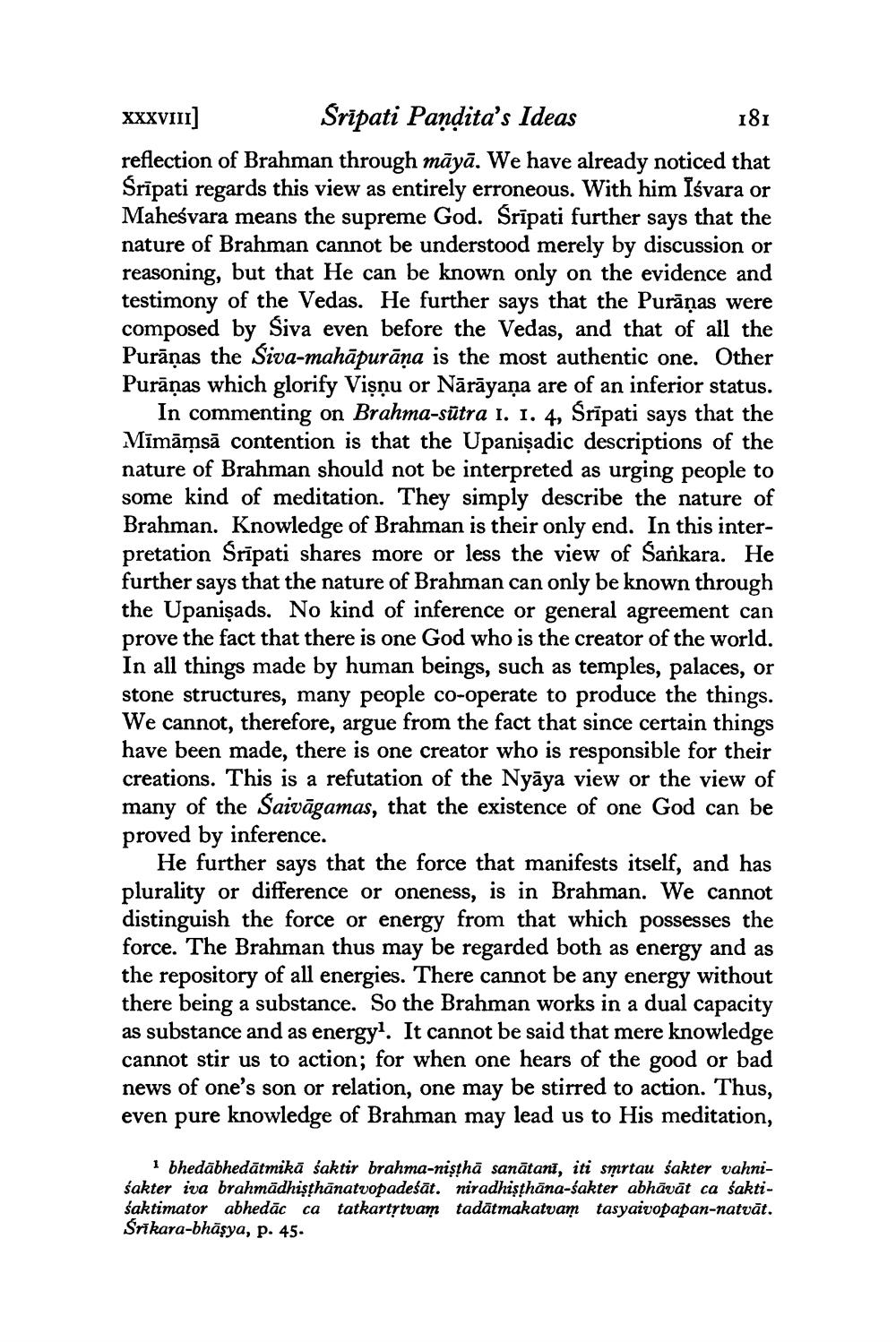________________
XXXVIII] Srīpati Pandita's Ideas
181 reflection of Brahman through māyā. We have already noticed that Srīpati regards this view as entirely erroneous. With him Isvara or Maheśvara means the supreme God. Śrīpati further says that the nature of Brahman cannot be understood merely by discussion or reasoning, but that He can be known only on the evidence and testimony of the Vedas. He further says that the Purāņas were composed by Siva even before the Vedas, and that of all the Purāņas the Siva-mahāpurāņa is the most authentic one. Other Purāņas which glorify Vişņu or Nārāyaṇa are of an inferior status.
In commenting on Brahma-sūtra 1. 1. 4, Śrīpati says that the Mīmāņsā contention is that the Upanişadic descriptions of the nature of Brahman should not be interpreted as urging people to some kind of meditation. They simply describe the nature of Brahman. Knowledge of Brahman is their only end. In this interpretation Srīpati shares more or less the view of Sankara. He further says that the nature of Brahman can only be known through the Upanişads. No kind of inference or general agreement can prove the fact that there is one God who is the creator of the world. In all things made by human beings, such as temples, palaces, or stone structures, many people co-operate to produce the things. We cannot, therefore, argue from the fact that since certain things have been made, there is one creator who is responsible for their creations. This is a refutation of the Nyāya view or the view of many of the Saivāgamas, that the existence of one God can be proved by inference.
He further says that the force that manifests itself, and has plurality or difference or oneness, is in Brahman. We cannot distinguish the force or energy from that which possesses the force. The Brahman thus may be regarded both as energy and as the repository of all energies. There cannot be any energy without there being a substance. So the Brahman works in a dual capacity as substance and as energył. It cannot be said that mere knowledge cannot stir us to action; for when one hears of the good or bad news of one's son or relation, one may be stirred to action. Thus, even pure knowledge of Brahman may lead us to His meditation,
i bhedābhedātmikā śaktir brahma-nisthā sanātani, iti smrtau śakter vahniśakter iva brahmädhişthānatvopadeśāt. niradhişthāna-śakter abhāvāt ca sakti - Śaktimator abhedāc ca tatkartytvam tadātmakatvam tasyaivopapan-natvāt. Srikara-bhāşya, p. 45.




